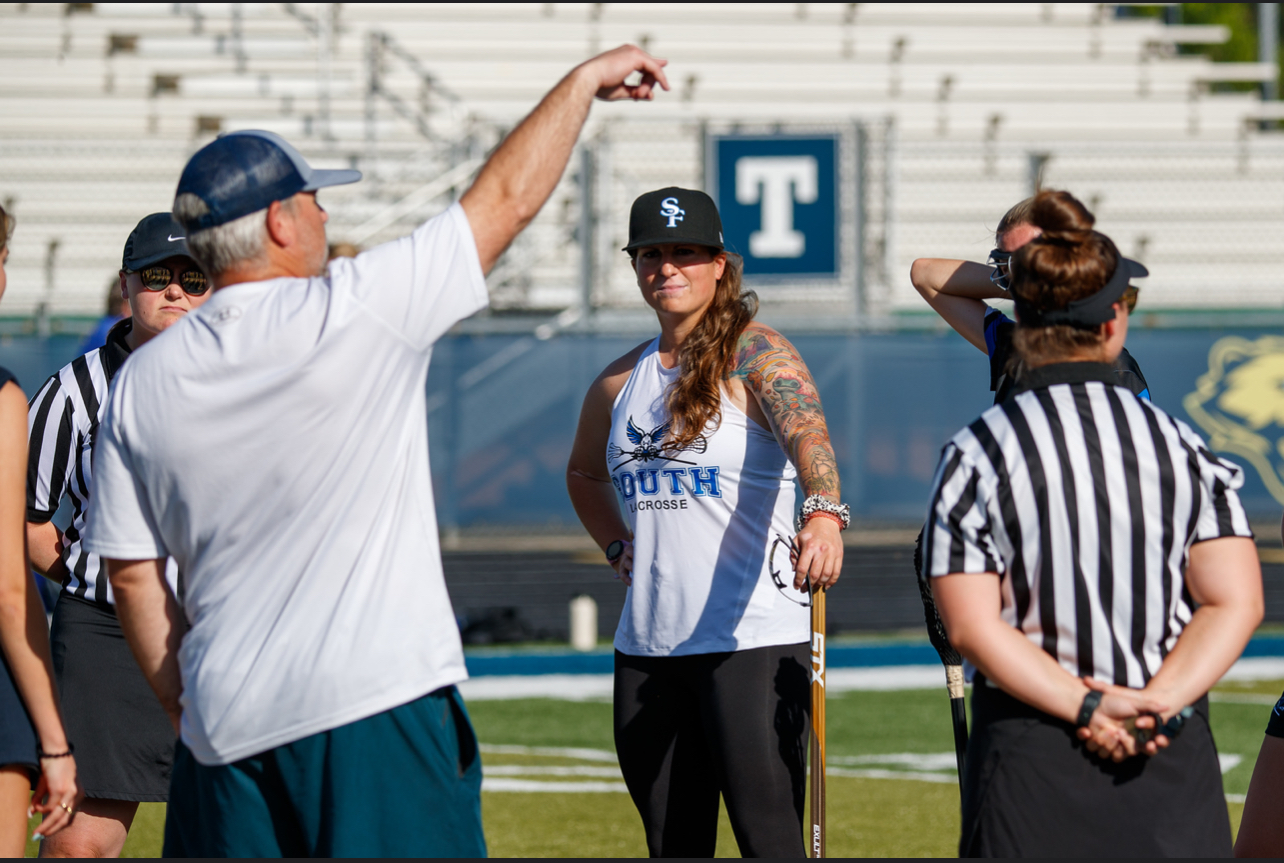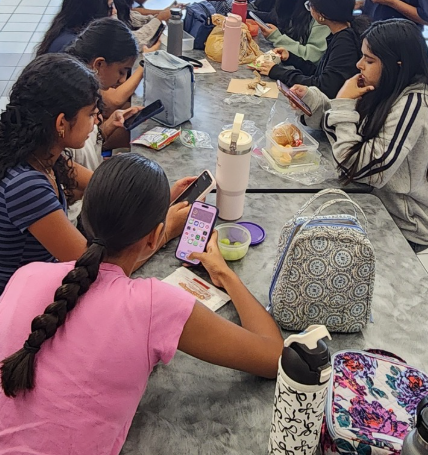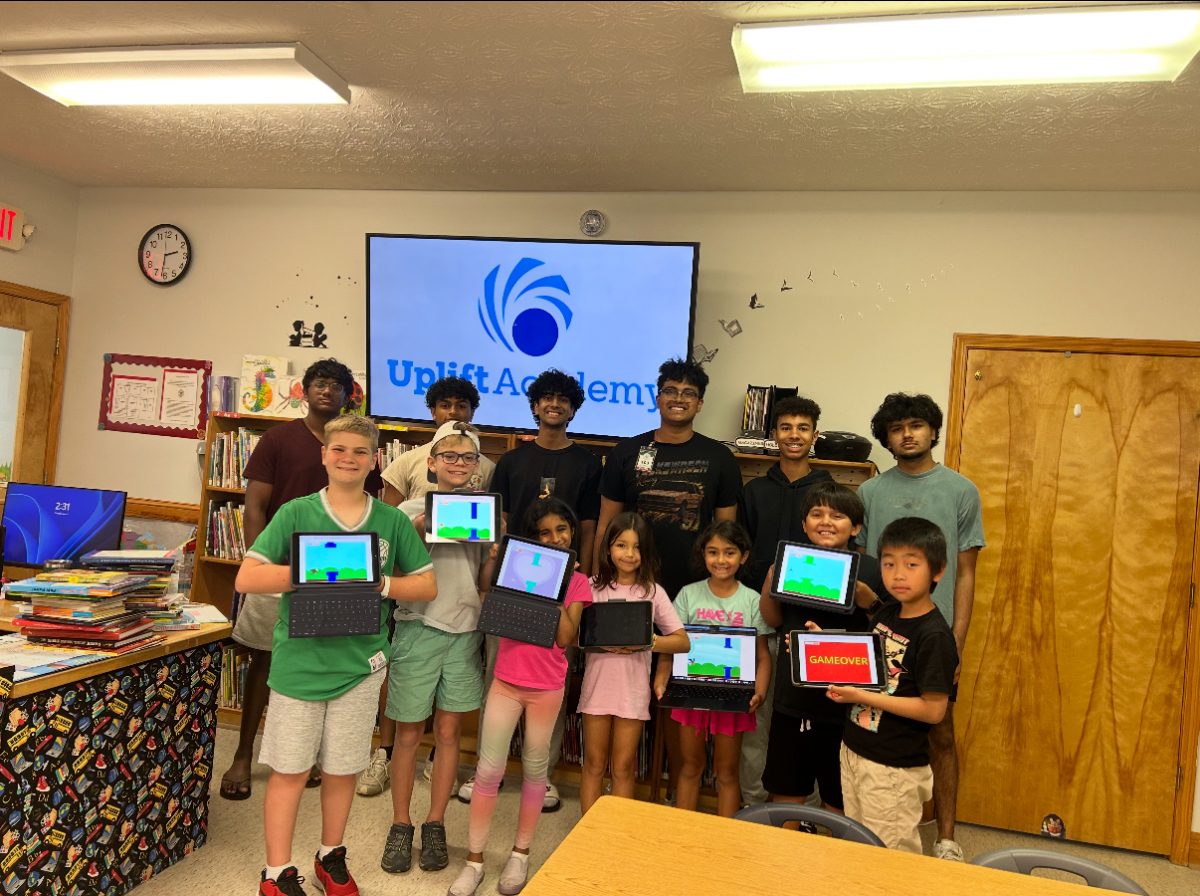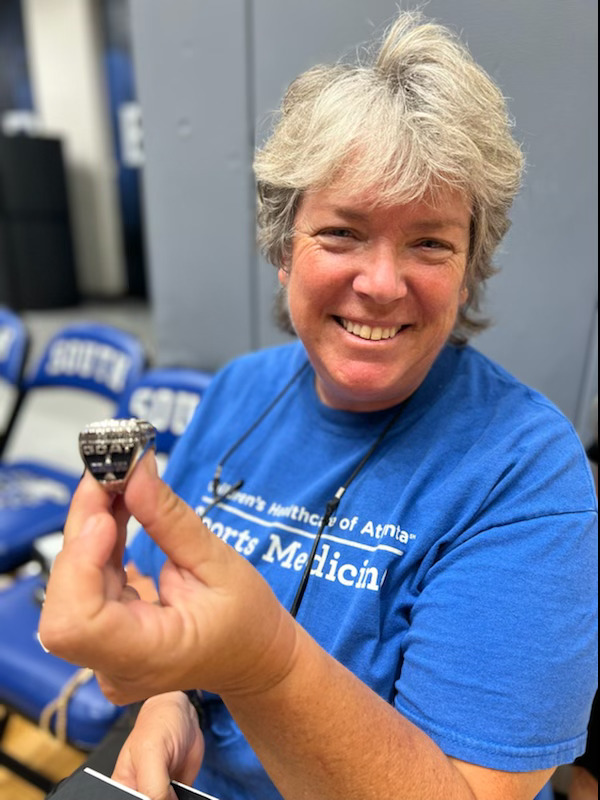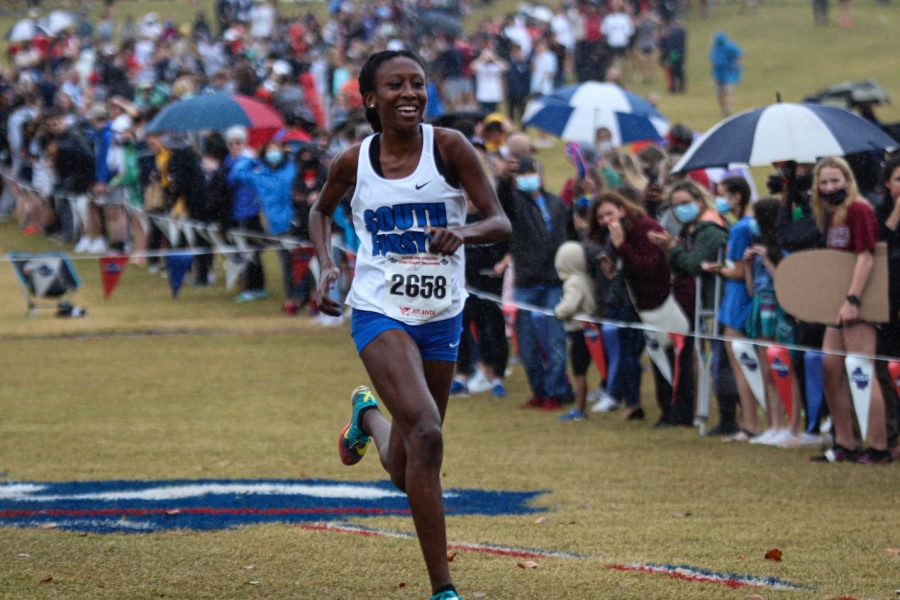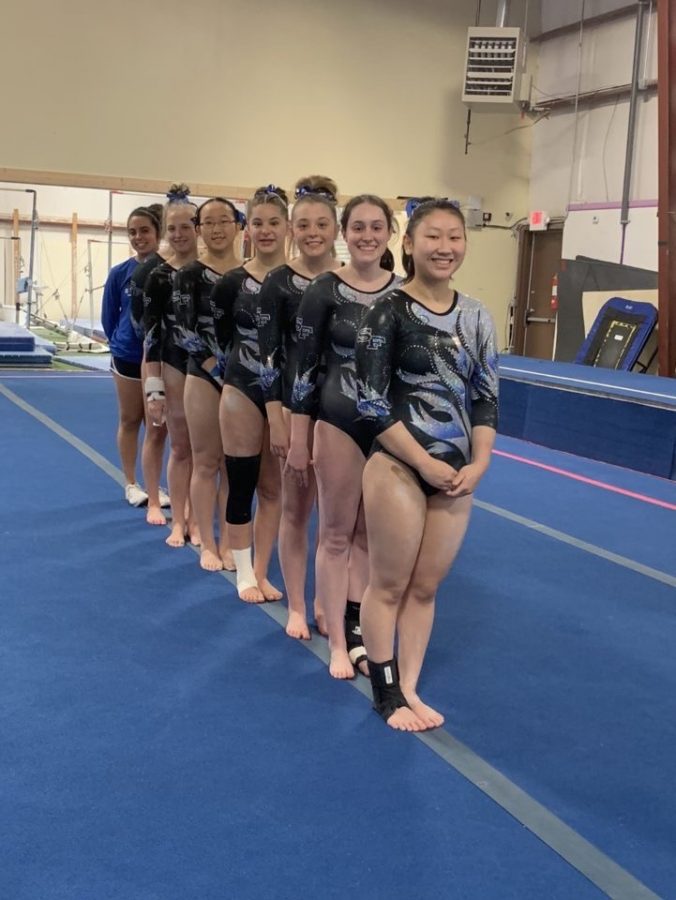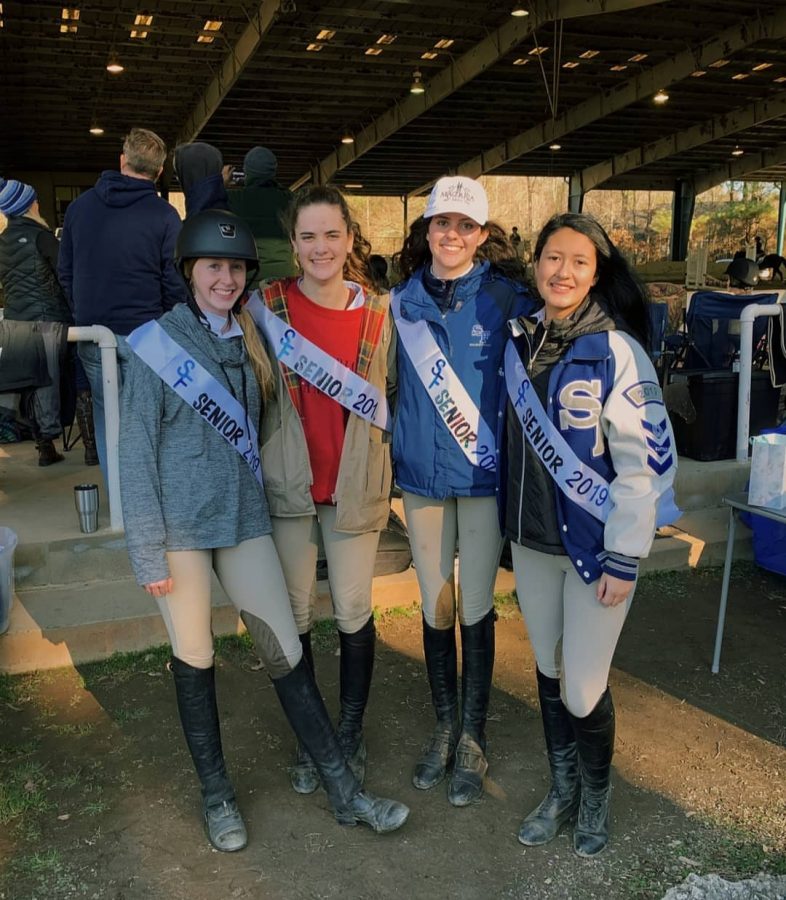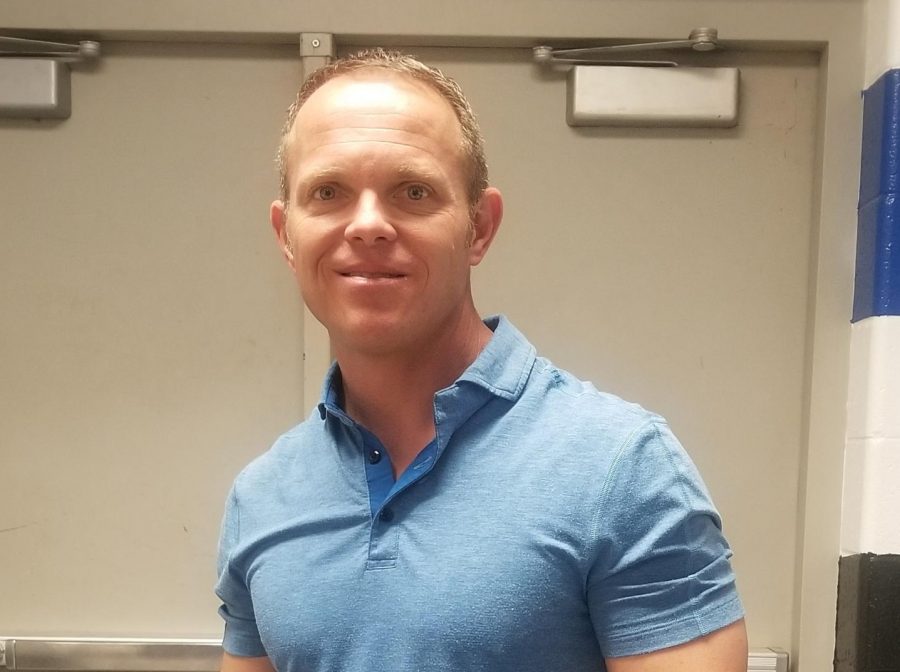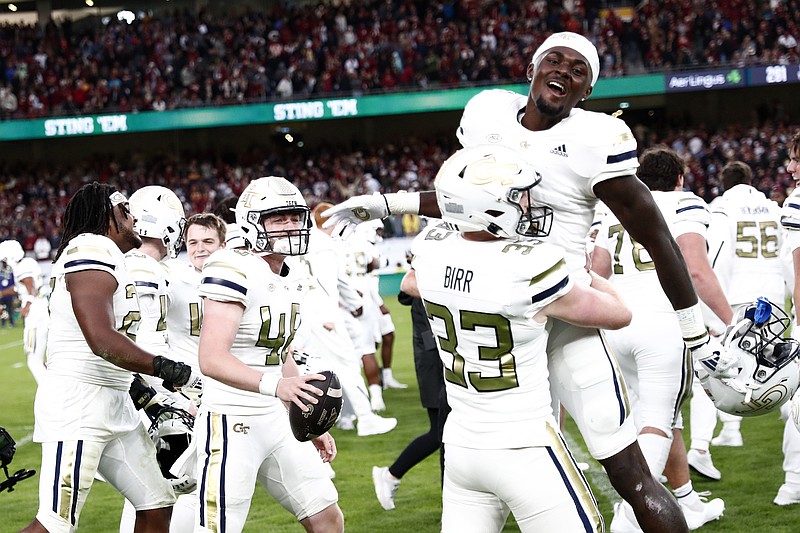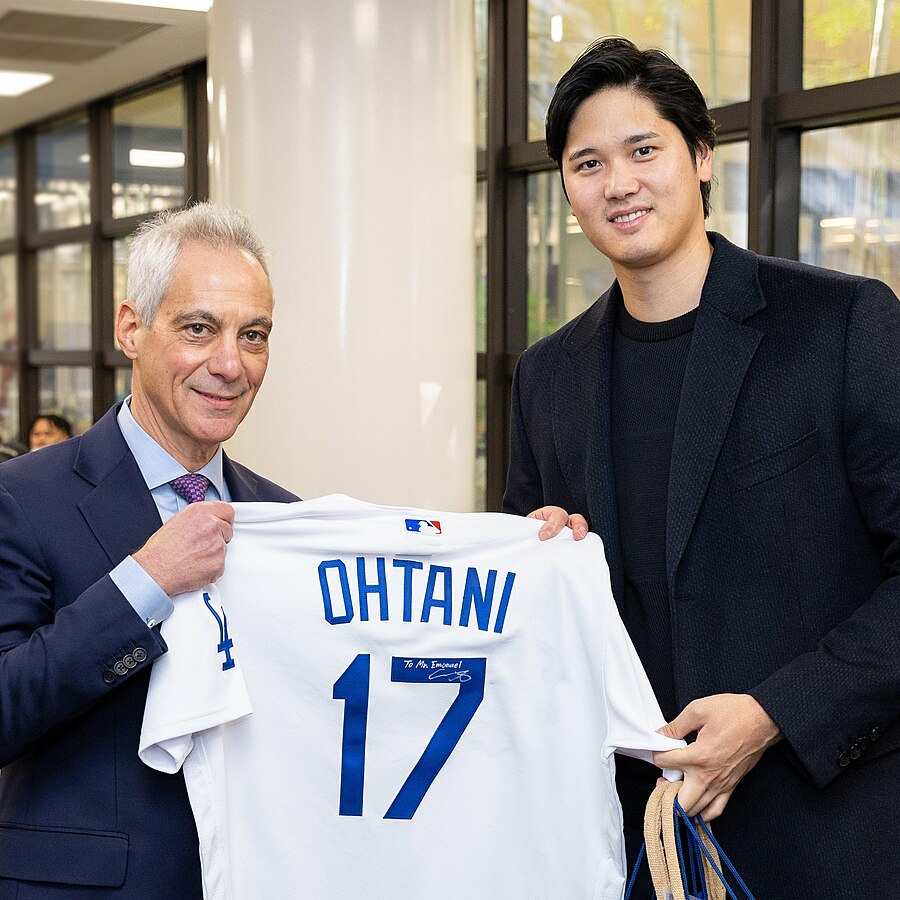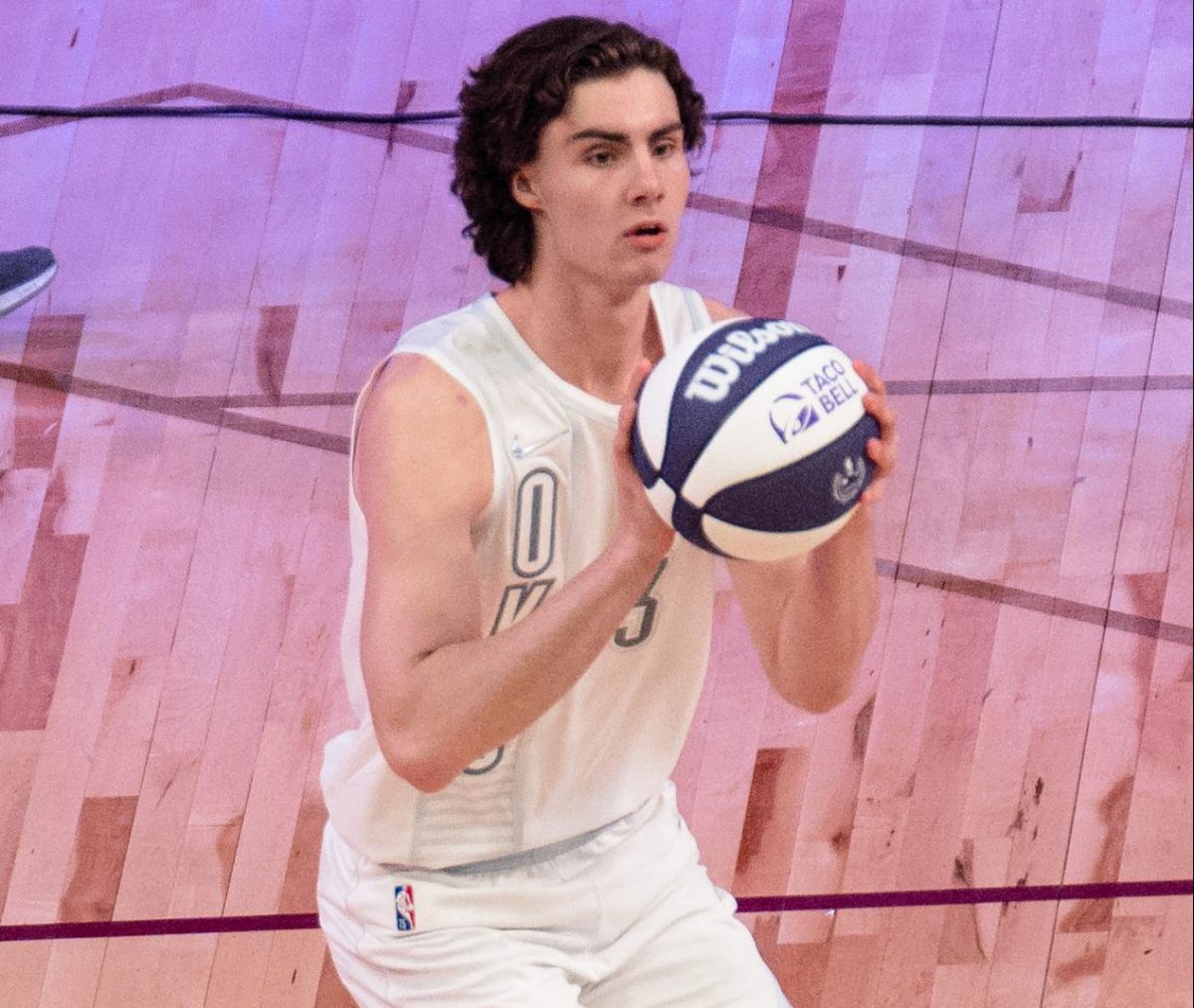You can’t keep a good woman down.
This may sound like an empty platitude, but in a political environment with a lot of questions about women’s sports, Jenna Kasmarik, South’s Girls Lacrosse coach and history teacher, may have the answers.
As an athlete at numerous universities, Kasmarik experienced firsthand the differences in the treatment of men’s and women’s athletes. Limited scholarships, lack of resources, and less acknowledgement than other teams are just the first layers of uncovering the unequal distributions of power in the sports world.
“When I was a [college lacrosse] player, I knew very well that they weren’t going to give us the resources that we needed at Winthrop University for the girls’ team,” Kasmarik said. “We had very limited scholarships. I’ll never forget [how] if we wanted a new sweatshirt, we had to pay to get one. Our budgets were different. We were not a priority sport until we started winning.”
This is just one of the challenges Kasmarik faced as a woman in a competitive sports environment. Her stories shed light on the struggles and joys of coaching and playing at the most challenging level of sports, Division I Athletics in college, and give insight into what women in sports have achieved today and what obstacles still need to be overcome.
A Passion Uncovered
“I quit softball as an eighth grader,” Kasmarik said.
Her older brother had played lacrosse, a fast-moving contact sport played with a lacrosse stick and a ball. Over time, she also picked up the sport, and with her brother’s help, Kasmarik got inspired to join a women’s league in Atlanta.
“It was the only sport my parents didn’t ask me to practice,” Kasmarik said, describing how much she enjoyed it. She was constantly out on the field, loving the challenge of the game.
After countless hours of practice, she went on to join the Women’s League in Atlanta, an organization that focused on “building us as athletes but also building us as people.” The experience of being taught by former and current women college players would leave a lasting impact on the future coach.
“I was so fortunate to have somebody like [them] who saw my potential,” she said.
Teamwork Makes the Dream Work
Through lots of hard work on the field and in school, Kasmarik moved forward with her lacrosse career as a DI athlete. However, despite playing at various universities, she unexpectedly found herself in a position where her coach lost belief in her.
Kasmarik recalled in her sophomore year when her coach pulled her into her office and told Kasmarik she needed to transfer. After spending two difficult years on the team and trying to feel like she belonged, everything finally came to a stop when her coach “just gave up on [her],” Kasmarik recalled.
Soon, Kasmarik realized that this school wasn’t the place for her, and she needed to move for her career. She transferred to the lacrosse program at Rock Hill University in South Carolina, playing with her dream team.
“It was the closest I’ve ever been with a team,” she said. “I think that was where I realized how much I needed those people around me.”
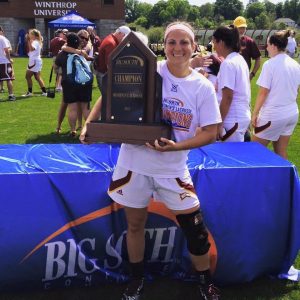
Coming from a team that didn’t support her, this feeling was new to Kasmarik. A few weeks before their team’s major meet, all the women athletes held a huge bonfire and reflected on their goals, bringing them closer. The bonfire created a bond within the team, and as they went to play more challenging games, they could now overcome them together and win greater titles.
“We ended up winning our first ever Big South Conference title at the door as a program,” Kasmarik said. “It really was the highlight of my college career.”
Becoming a Coach
While her early years were filled with inspiration and overcoming adversity with support, Kasmarik’s college coaching journey presented a strong contrast.
When she became a college coach, Kasmarik ran into issues with male referees at games who would make calls that prevented her team from being more physically aggressive.
“[Female athletes] are powerful, strong individuals,” Kasmarik said. “I don’t train these kids in the weight room for them not to be physical.”
Even with the amount of experience Kasmarik had, these referees were under the assumption that they knew more than she did.
“This is a contact sport, and [the referee] had the audacity to tell me it wasn’t,” she said.
Kasmarik also had other experiences with male coaches who called her “sweetie” or “honey” when that wasn’t how she wanted to be addressed.
“I am a coach. I am your equal,” Kasmarik said. “I don’t care that I’m younger than you. I don’t care how long you’ve been doing this. As far as I’m concerned, we’re on the same playing field.”
Unfortunately, these contentious encounters were common for Kasmarik during this time, but she kept her head down and found herself swept up in a few new trends.
“When I was in college coaching…we had a fad of hiring young assistants,” Kasmarik said.
Women’s lacrosse was slowly incorporating some of the same elements as the male approach, such as speed and strategies. Soon, many female coaches began to hire male assistants in extensive numbers, leading to a trial-and-error process.
“Yes, were we evolving as a sport,” Kasmarik said. “Were we taking elements and rules from the men’s game? Of course, we were. [But] that didn’t mean that men understood our game more than us.”
Ultimately, this belief that male coaches understood the game better than the women coaches themselves was part of why Kasmarik left college coaching jobs. However, these experiences allowed Kasmarik to gain insight into the nature of life.
“I’ve learned that if there’s anything I want in life—if I outwork people—I’m going to get whatever I want,” Kasmarik said, reflecting on her life’s work of successfully winning and coaching games, to working as a history teacher and high school girls lacrosse coach.
“My favorite thing in the world is when people tell me I can’t do it, because it is the greatest motivation,” she said.
‘Men do it all the Time’
As South’s Girls Lacrosse coach, Kasmarik has propelled her team to great heights.
At the time of this article’s publication, the Girls Lacrosse team is ranked first regionally. In 2024, they were ranked in the Top 10 teams in Georgia, and Kasmarik was named the High School Girls’ Coach of the Year for Georgia by USA Lacrosse.
Kasmarik emphasizes the importance of having female coaches who supported her, as well as some who didn’t believe in her talent but still impacted who she is today.
“I was surrounded by strong women, women who are establishing themselves, and I was able to just revel in that and listen,” she said.
This type of camaraderie and support is what she wants for all girls in every sport, not just Lacrosse, especially at a time when women’s sports are gaining traction culturally.
“Everyone watches women’s sports now, and we need to own that,” said Kasmarik.
She cites professional athletes like Caitlin Clark and Serena Williams, who both dominate their sports, as examples of how female athletes shouldn’t be considered mean or bullies just because they are aware of their worth.
“I think what we’ve been afraid of is women having the power and recognizing their own greatness,” Kasmarik said.
She hopes we move in a direction where women can show a fierce attitude and aggression that makes great athletes. She thinks we are getting into a sphere where a “female is unapologetically great” and looks forward to what the future holds for great women athletes.
As Kasmarik said, “Men do it all the time.”



